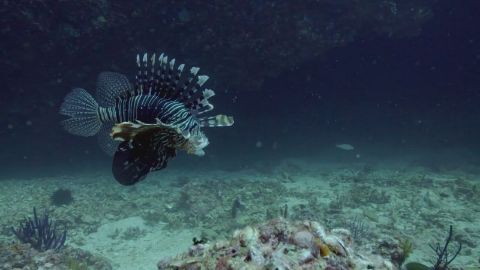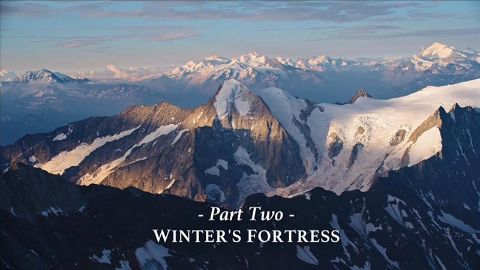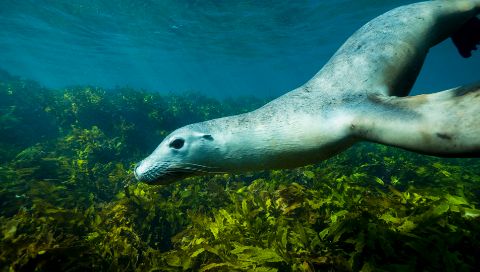Turtle / Eagle / Cheetah: A Slow Odyssey • 2017
Riding onboard with a cheetah, a green turtle and a white-tailed sea eagle as they show us around their respective homes. With natural sounds and elegant embedded graphics delivering information, this is an immersive journey into their world like no other. Each section rides onboard with one of the animals as it shows us around its world. Revealing how they go through their daily routines, journey across different parts of their homes and introduce us to the other animals they share them with, in this extraordinary immersive show. A trio of cheetahs hunting on the Namibian bushveld, a green turtle cruising the reefs of Indonesia and a white-tailed sea eagle as it soars above the west coast of Scotland. All the animals are part of ongoing scientific studies or research projects, they are habituated or trained to carry small, lightweight cameras capable of capturing images in high definition. With often bespoke technology developed and pioneered by research scientists and the teams from Blue Planet II and forthcoming series Animals With Cameras. This is the core of this immersive BBC Four series that reveals the natural world through the perspective of its subjects, and has afforded the scientific community an even deeper understanding of their subjects.
Make a donation
Buy a brother a hot coffee? Or a cold beer?
Hope you're finding these documentaries fascinating and eye-opening. It's just me, working hard behind the scenes to bring you this enriching content.
Running and maintaining a website like this takes time and resources. That's why I'm reaching out to you. If you appreciate what I do and would like to support my efforts, would you consider "buying me a coffee"?
Donation addresses
BTC: bc1q8ldskxh4x9qnddhcrgcun8rtvddeldm2a07r2v
ETH: 0x5CCAAA1afc5c5D814129d99277dDb5A979672116
With your donation through , you can show your appreciation and help me keep this project going. Every contribution, no matter how small, makes a significant impact. It goes directly towards covering server costs.





